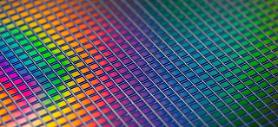
[Courtesy of Samsung SDI]
SEOUL -- Faced with an uncertain business environment caused by a coronavirus pandemic, Samsung SDI, the battery-making unit of South Korean tech giant Samsung Electronics, has put on hold the planned construction of a smartphone battery plant in India.
Samsung Electronics has relocated its smartphone production base to Vietnam and India. In 2018, the company opened a new plant capable of producing 120 million smartphones per yea in Noida in northern India. Samsung SDI followed suit to build a smartphone battery plant in Noida.
An unexpected business slump in India and other countries prompted Samsung SDI to change its Indian subsidiary into a sales corporation, but the decision appeared to be temporary. "If the local market is normalized and demand increases in the future, we will consider converting our Indian subsidiary into a production company," said an unnamed Samsung SDI official.
Samsung SDI has restructured overseas subsidiaries to strengthen its electric vehicle battery business. Samsung researchers claimed to have developed a prototype pouch cell for high-performance, long-lasting "all-solid-state" batteries that would enable an electric vehicle to travel up to 800 kilometers (497 miles) on a single charge.
Lithium-ion batteries have the weakness of taking too long to charge and discharge. Battery suppliers are trying to develop cheaper, more efficient, more powerful batteries. Demand for medium and large batteries is increasing not only in electric vehicles but also in various fields such as boats, electric trucks and energy storage devices.
A solid-state battery uses solid electrodes and a solid electrolyte. Compared to flammable liquid electrolytes, solid-state batteries have a lower risk of catching fire. Faster charging, higher voltage and longer cycle life are possible, but challenges to widespread adoption include energy and power density, durability, material costs, sensitivity and stability. Samsung researchers used a silver-carbon (Ag-C) composite layer to reduce thickness and increase energy density.
Copyright ⓒ Aju Press All rights reserved.



